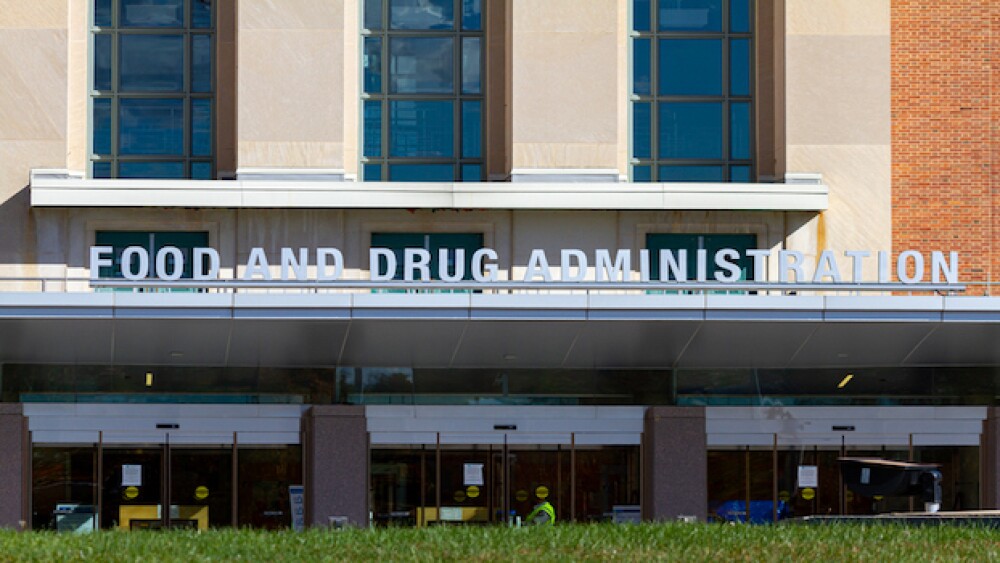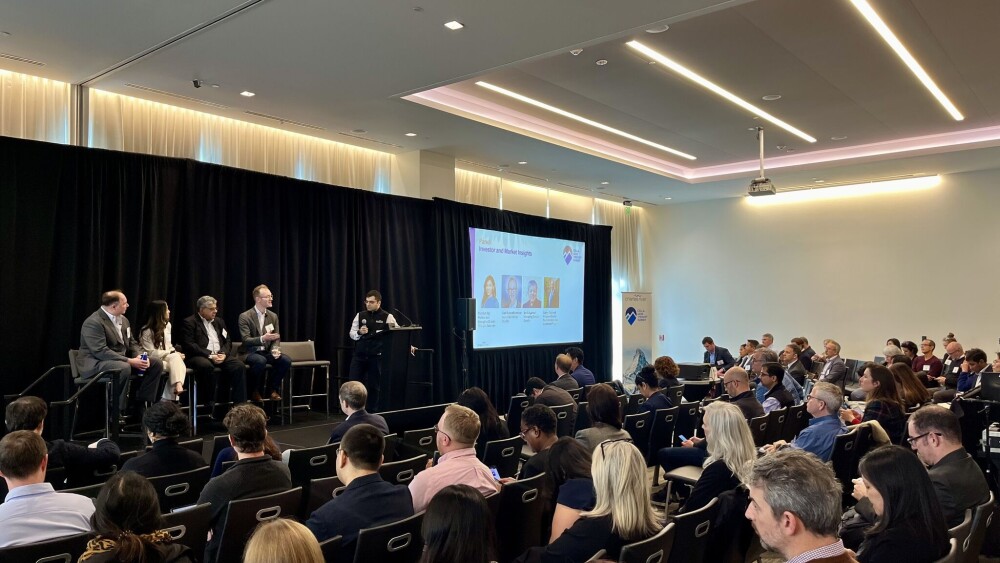Thursday, Eisai and Biogen’s Leqembi also became the first disease-modifying treatment for Alzheimer’s to win traditional approval. CMS coverage is expected to begin immediately.
Pictured: FDA Building/Adobe Stock, Grandbrothers
In the summer’s most highly anticipated regulatory decision, the FDA on Thursday greenlit Eisai and Biogen’s Leqembi (lecanemab) as the first anti-amyloid antibody—and the first disease-altering drug—for Alzheimer’s disease to win traditional approval.
The approval was granted based on a confirmatory trial that verified clinical benefit, according to the FDA’s announcement. The Phase III Clarity-AD study showed treatment with Leqembi reduced clinical decline by 27% compared to placebo after 18 months based on the Clinical Dementia Rating-Sum of Boxes (CDR-SB) assessment.
“I think it’s a breakthrough,” Howard Fillit, co-founder and chief science officer at the Alzheimer’s Drug Discovery Foundation, told BioSpace prior to the FDA’s announcement. “It proves that we can create drugs that are effective against Alzheimer’s disease that can come to market and slow the disease down by about 30%.”
Leqembi won the regulator’s accelerated approval in January but was available to a limited number of patients as the Centers for Medicare and Medicaid Services (CMS) would only cover the drug in the context of a clinical trial. CMS confirmed in June that it would cover Leqembi “in appropriate settings” upon the drug’s traditional approval, with the requirement of a patient registry intended to collect real-world data on the usefulness of anti-amyloid antibodies in this indication.
Thursday’s decision was widely expected after an advisory committee last month voted unanimously for Leqembi’s approval. On June 9, the FDA’s Peripheral and Central Nervous System Drugs Advisory Committee voted 6-0 in favor of converting the accelerated approval to full. The FDA is not obligated to follow the recommendations of its advisors but it usually does—and did so on Thursday.
Medicare coverage of Leqembi will not be simple, however. While CMS said coverage would begin the day of the traditional approval, physicians will be required to submit patient data to a registry—the details of which are still unclear—in order to secure coverage.
Biopharma industry group PhRMA said in a statement in June that the registry would “severely restrict patient access to FDA-approved medicines, leaving in place barriers to potentially life-changing treatment options for a devastating illness,” according to Pharmaceutical Technology and the Alzheimer’s Association, which called the condition an “unnecessary barrier.”
John Dickson, a neurologist at Massachusetts General Hospital and instructor in neurology at Harvard Medical School, told BioSpace in a previous interview that if the registry involves extensive surveys and neuropsychological evaluation, completing a traditional clinical visit could be challenging. “So, it’s important to make sure that whatever is included in a study of this type or a registry is practical within the confines of a routine clinical visit,” he said.
While Leqembi’s accelerated approval was hailed as a win for a space that has seen few victories, experts were cautious in their excitement, with Marwan Sabbagh of the Barrow Neurological Institute and an investigator on Clarity-AD calling it a “modest victory.”
There are also still lingering questions about the safety of the anti-amyloid antibody class.
FDA briefing documents released prior to the advisory committee meeting focused on three groups that appear to be at greater risk for brain swelling and bleeding (ARIA): people with two copies of the ApoE ε4 allele, a known genetic risk factor in the development of Alzheimer’s; those requiring concomitant treatment with anticoagulant agents; and people with cerebral amyloid angiopathy, a condition where amyloid proteins build up on the brain’s arterial walls. Ultimately, the advisors found the risk-benefit profile to be acceptable, even in these groups, with monitoring in the early months of treatment when ARIA is most common.
For widespread access to Leqembi to be achieved, Fillit said the infrastructure—including infusion centers, MRIs to measure ARIA-E and ARIA-H, and PET scans to test for the presence of amyloid in the brain—will need to be more fully developed. Because of this, he said it would be six to 12 months before widespread use of the drug becomes a reality.
Heather McKenzie is a senior editor at BioSpace, focusing on neuroscience, oncology and gene therapy. You can reach her at heather.mckenzie@biospace.com. Follow her on LinkedIn and Twitter @chicat08.






